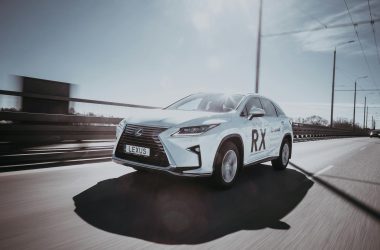Gas prices across the United States have fallen to low levels which are well under $3 per gallon. Economically, this is good, but people are likely to waste more, offsetting the economic benefit and increasing emissions. People are likely to start buying gas guzzlers again, as they did in the past. Most people only buy fuel-efficient vehicles if they have to and they seem to care more about now than they do about the future. The government’s fuel efficiency standards (like CAFE) don’t only serve the purpose of lowering the fuel cost of driving vehicles that comply with them, but to reduce emissions. This should help keep fuel efficiency standards from being reduced or undone.

Image obtained with thanks from Chevrolet.
As history has taught us: People tend to live in the moment, and as a result of that, the sale of larger gas guzzling vehicles tends to decline when fuel prices are high, and that reverses whenever fuel prices decrease substantially. Weaning the world off fossil fuels entails a sustained reduction of fossil fuel consumption. Today, the price of WTI crude oil is $53.27, and the price of Brent crude oil is $57.33. There is an oil supply glut contributing to this (which also happened in 2009 after oil demand plummeted due to the price spike, causing oil prices to decrease from $143 per barrel to $35).
This supply glut can’t last forever simply because supply can’t stay higher than demand. The smart thing to do is stick with your Civic, Prius, Corolla, or whichever fuel-efficient car you have and save gas money for the next financial rough patch. Also, reducing your emissions goes a long way to making the world a healthier and safer place for future generations. I mentioned safety due to the severe weather that climate change is likely to augment, such as stronger/more frequent hurricanes, and more flooding.
Brandon Turkus of Autoblog commented:
‘Instead, it will likely be the automakers’ desire to maximize economies of scale that forces it to retain the current 2025 targets, Ward’s reports. According to Continental’s CEO for the NAFTA region, Samir Salman, “we feel the point of no return already is there. Many companies are global. They want common engines, common this, common that. It gets complicated if you want to make changes. If you would change it now it would create more sunk cost than anything else.’







